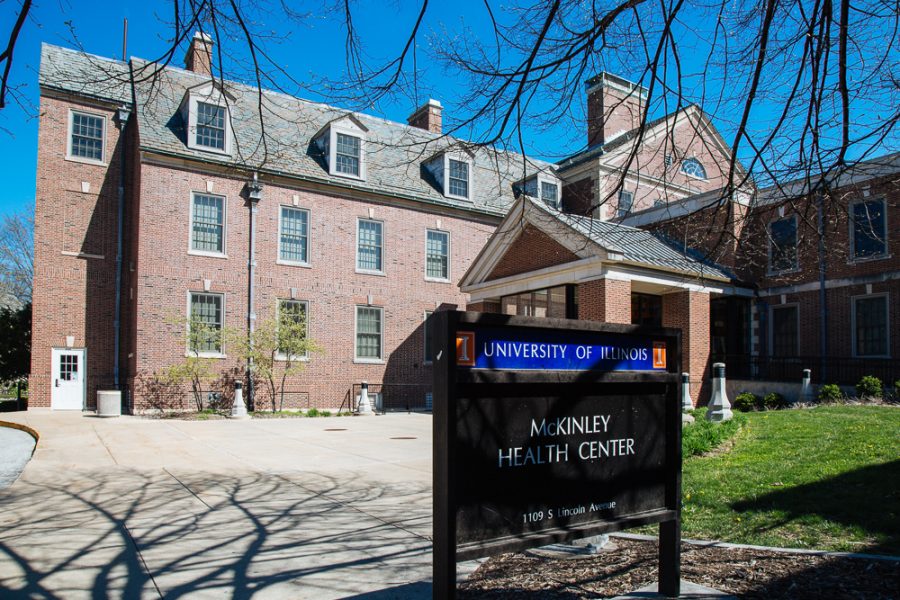Letter to the Editor | University politics impede aid to students with mental health issues
Photo of the McKinley Health Center on 1109 S. Lincoln Ave. on April 17, 2016.
May 4, 2019
Most people have to manage difficult mental health situations at some or many points in their life — especially students in higher education institutions.
Here’s what we know:
1. Universities have mental health treatment resources for students. (Yay!)
2. These resources are over capacity. (Uh oh.)
3. Universities tend to make bureaucratic decisions that do more harm than good.
Get The Daily Illini in your inbox!
Let’s take a step back. We read numerous stories about college students committing suicide on and off campus. We wonder how no one caught the signs or why they didn’t get help.
As you can probably predict, college counseling centers are extremely overworked and understaffed. For every one counselor, there are 1,500 students to serve. That’s an impossible workload. When a counselor identifies a student at risk for suicide, they should be continuing more rigorous courses of treatment, like additional counseling sessions.
When students are identified to be at high risk for suicide, one of two things usually happens: the student is forced to take a leave of absence or is forced into hospitalization. Hospitalization can become a financial burden, adding additional fuel to the fire, and studies show that removing a student from their normal environment causes feelings of isolation.
So why do Universities do this? Most universities are extremely concerned about their brand and the potential liability of a student’s actions or behavior. Therefore, they create policies to limit that liability. It is evident that most universities take the correct first steps by having counseling and mental health resources. But when the going gets tough, universities resort to measures that don’t quite align with the same goals that the provision of counseling and medical treatment set out to meet.
Why go through the trouble of providing resources for students only to let politics undo all the progress made?
Yasmine Gordon is a senior in LAS.







